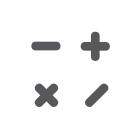GCSE Maths
Specification
Exam Board: Edexcel
Qualification
Maths 1MA1
Aims of the course
Mathematics is a subject that will enable you to learn the knowledge, understanding and skills you need to apply when working in the world of science, computing, economics and business. We will ensure that the students achieve their full potential within Mathematics by encouraging students to use Mathematics in everyday life as a tool, and for other subjects by developing key problem solving and analytical skills.
Students are given opportunities to develop skills in logical thinking and problem solving. They will study many of the concepts already learnt in KS3 in more detail as well as many new areas of mathematics. We will continue to encourage you to apply structure and methodical workings out to written calculations.
Knowledge, skills and understanding are covered by this qualification under the following content headings: Number, Algebra, Ratio, Proportion and rates of change, Geometry and Measure, Probability and Statistics.
The aims and objectives of the course in Mathematics are to enable students to:
- develop fluent knowledge, skills and understanding of mathematical methods and concepts;
- acquire, select and apply mathematical techniques to solve problems;
- reason mathematically, make deductions and inferences, and draw conclusions;
- comprehend, interpret and communicate mathematical information in a variety of forms appropriate to the information and context.
Course units and texts studied
The mathematics curriculum is broken into the following topics:
- Number including basic manipulation (multiplication, addition, subtraction, division), decimals, fractions, percentages, indices
- Ratio, Proportion & Rates of Change including scale factors, scale diagrams, ratio notation, direct and indirect proportion
- Algebraincluding solving equations, graphs, sequences, functions, simultaneous equations
- Geometry and Measureincluding 3D shapes, transformation, angle facts, circle theorems, trigonometry
- Probability and Statistics including statistical averages, graphical representation, hypothesis testing and survey
How is it assessed?
The GCSE course meets the Ofqual regulations for GCSE (1-9). It is available at two levels: Foundation (grades 1 to 5) and Higher (grades 4 to 9) and based on 100% Examination. Each student is permitted to take assessments in either the Foundation tier or Higher tier.
At the end of Year 11 there are three examinations: One non-calculator paper and two-calculator papers. Each paper is 1 hour and 30 minutes long.
Two tiers are available: Foundation and Higher
The qualification consists of three equally-weighted written examination papers at either Foundation tier or Higher tier. All three papers must be at the same tier of entry and must be completed in the same assessment series. Each paper has 80 marks.
GCSE Maths – 3 papers
Paper 1 ( Non Calculator)
Paper 2 (Calculator)
Paper 3 (Calculator)
Suggested reading
- In code – Sara Flannery
- E, The story of a Number – Eli Maor
- The Emperor’s New Mind – Roger Penrose
- The Wonders of Numbers – Clifford Pickover
- From Here to Infinity – Ian Stewart
- The Art of Infinity: Lost Language of Numbers – Robert Kaplan
“I really enjoy learning Maths because it helps me understand equations, see patterns and problem-solve in other subjects such as Science and Sociology.”
Year 10 student
Creative and Digital Media
Specification
Exam Board: OCR
Qualification
OCR Level 1/2 Cambridge National Certificate in Creative iMedia J817
View full specification
Aims of the course
The course equips students with the wide range of knowledge and skills needed to work in the creative and digital media sector. They start at pre-production and develop their skills through practical assignments as they create final multimedia products. The course aims to enhance our students’ employability when they leave us, contributing to their personal development and future economic well-being. The Creative iMedia qualification encourages independence, creativity and awareness of the digital media sector.
How is it taught?
The course assesses the application of creative media skills through their practical use and provides learners with essential knowledge, transferable skills and tools to improve their learning in other subjects.
Course units and texts studied
Mandatory
- R081 – Pre-production skills:Students are introduced to a range of essential pre-production techniques used in the creative and digital media, including client brief, time frames, deadlines and preparation techniques
- R082 – Creating digital graphics:Building on the skills and understanding that they have developed in the previous unit, students explore where and why digital graphics are used and the techniques that are involved in their creation. They apply their skills and knowledge in creating digital graphics against a specific brief.
Optional
- R089 – Creating a digital video sequence:Students discover where digital video sequences are used in the media industry and how these technologies are developed to reach an identified target audience as they plan, create and edit a digital video sequence and review it against a specific brief
- R091 – Designing a game concept:Students learn the basics of planning and designing digital games for the creative digital media sector. They investigate the capabilities and limitations of different platforms, and identify core features of digital games as they create a games design concept proposal for presentation to a client for critical review.
How is it assessed?
Mandatory
- R081 – Written paper, OCR set and marked, 1 hour 15 mins
- R082 – Centre-assessed tasks, OCR moderated, approx. 10 hours
Optional
- R089 – Centre-assessed tasks, OCR moderated, approx. 10 hours
- R091 – Centre-assessed tasks, OCR moderated, approx. 10 hours
Transition Materials

Creative Industries: Head Start
We’re really excited that you have chosen a MUTC Creative Industries specialism to study for your future career. Current subject areas include Media & Film, Performing Arts and Literature.
If you would like to know more about Creative Industries and prepare for life as a Creative Industries student please send an email to admissions@mulberryutc.org. Our friendly team will put you in touch with members of staff from the Creative Industries department, who will grant you personalised access to our ‘Head Start’ page.
When you receive the login details, you can begin to explore and learn more about the team and our subjects, as well as having a go at some of the challenges we have prepared for you!
We look forward to hearing from you.
Creative Industries Team
Business Studies
Exam board
OCR
Qualification
Cambridge National in Enterprise and Marketing
Aims of the course
Our learners will develop applied knowledge and practical skills in enterprise and marketing that they can use in the real world; either working for an organisation or setting up their own initiatives.
How is it taught?
Students will study three topics – enterprise and marketing concepts, design a business proposal and market & pitch a business proposal. The lessons are a mixture of theory, practical and project based lessons including individual work and group work.
Course units and texts studied
Learners will understand the main activities that will need to happen to support a start-up business and what the key factors are to consider when starting up a business. Learners will understand how and why customer segmentation is used and how to target a customer market. They will also develop an understanding of how to attract and retain customers, the techniques to use when developing products and how to investigate what makes a product viable.
How is it assessed?
In Year 10 there will be a 1 hour 30 minute externally assessed examination on unit RO64 – Enterprise and marketing concepts. In year 11 there will be two controlled assessments; one on unit RO65 – Design a business proposal and another on RO66 – Market and pitch a business proposal
Suggested reading
- Business review magazines
- Financial pages of newspapers
- BBC Business News website: http://www.bbc.co.uk/news/business
- https://www.tutor2u.net/business
- The Bottom Line, Radio 4: https://www.bbc.co.uk/programmes/b006sz6t
Destination and future careers
Students can move onto a level 3 Marketing or Business related qualification and will have developed entrepreneurial and marketing skills useful for the world of work or their own enterprise.
Religious Studies
Specification
Exam Board: N/A
Qualification
N/A
Aims of the course
Religious Studies at Mulberry UTC enables students to engage in the study of religion and belief whilst relating it to the specialist pathways they are undertaking. The subject allows learners to reflect on and develop their own values, opinions and attitudes on a range of topics, whilst developing their own identities as confident and creative young people.
How is it taught?
The Religious Studies curriculum is taught in three distinct ways:
- Three dedicated drop-down days during the academic year
- ‘Spiritual and Personal Development’ sessions run in tutor time once a week
- Collective worship in assemblies across all year groups
Course Overview
Religious Studies Day One: Faith in Film
Student will: gain insights into ways of expressing important religious ideas; understand the influence of religion in art/film; consider the value of religious imagery; identify the religious ideas being portrayed in film extracts; evaluate the realism and impact of particular portrayals of founders and leaders; assess the value and effectiveness of the film in communicating the essence of religion.
Religious Studies Day Two: Science and Religion
Students will: explore the difference between scientific knowledge and religious knowledge; explain the nature of ‘truth’ in each; discuss if religion and science are compatible, in conflict or mutually exclusive (co-exist but kept completely separate)
Religious Studies Day Three: Religion Charity and Conflict
Students will: explore the work of global religious charities and their work in conflict zones and upholding human rights around the world.
Tutor time include discussion topics sure as:
- What do different religions state about fairness and tolerance?
- Who are the Amish and what is their way of life?
- Does God exist?
- How does spirituality affect people’s lives?
Mulberry UTC also continues to link with St Joseph’s Hospice and other local religious organisations to support the delivery of religious studies.
How is it assessed?
Throughout the year, students will be assessed through reflections made on their e-portfolio in relation to their learning on the three religious education days, as well as the spiritual development reflection activities completed in tutor time.
Destinations and future careers
Careers related to studying Religious Studies include: Teacher; Social Worker Community development worker; or Family support worker; International aid/development worker; Social researcher; Youth worker; Charity fundraiser; faith advocate.




















